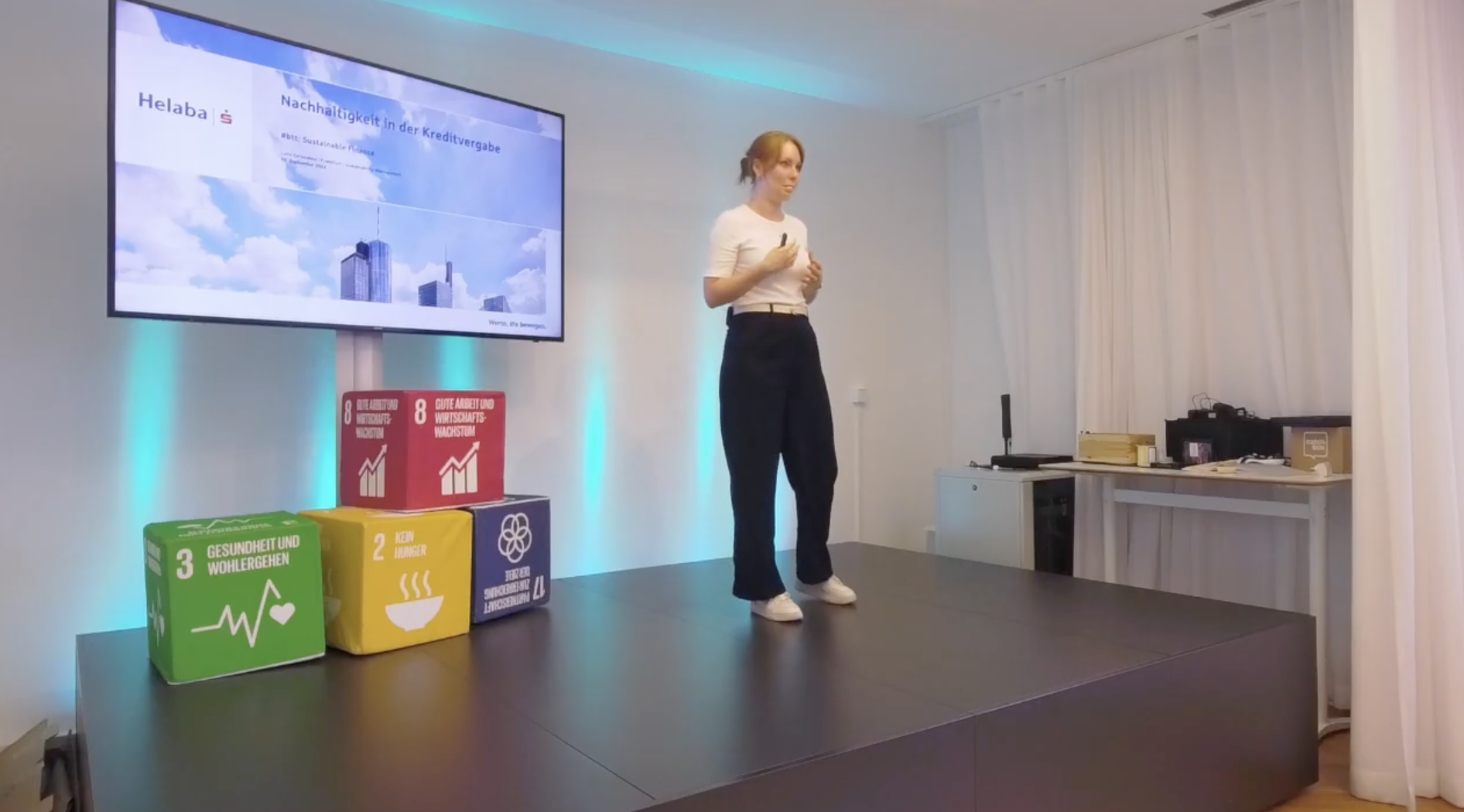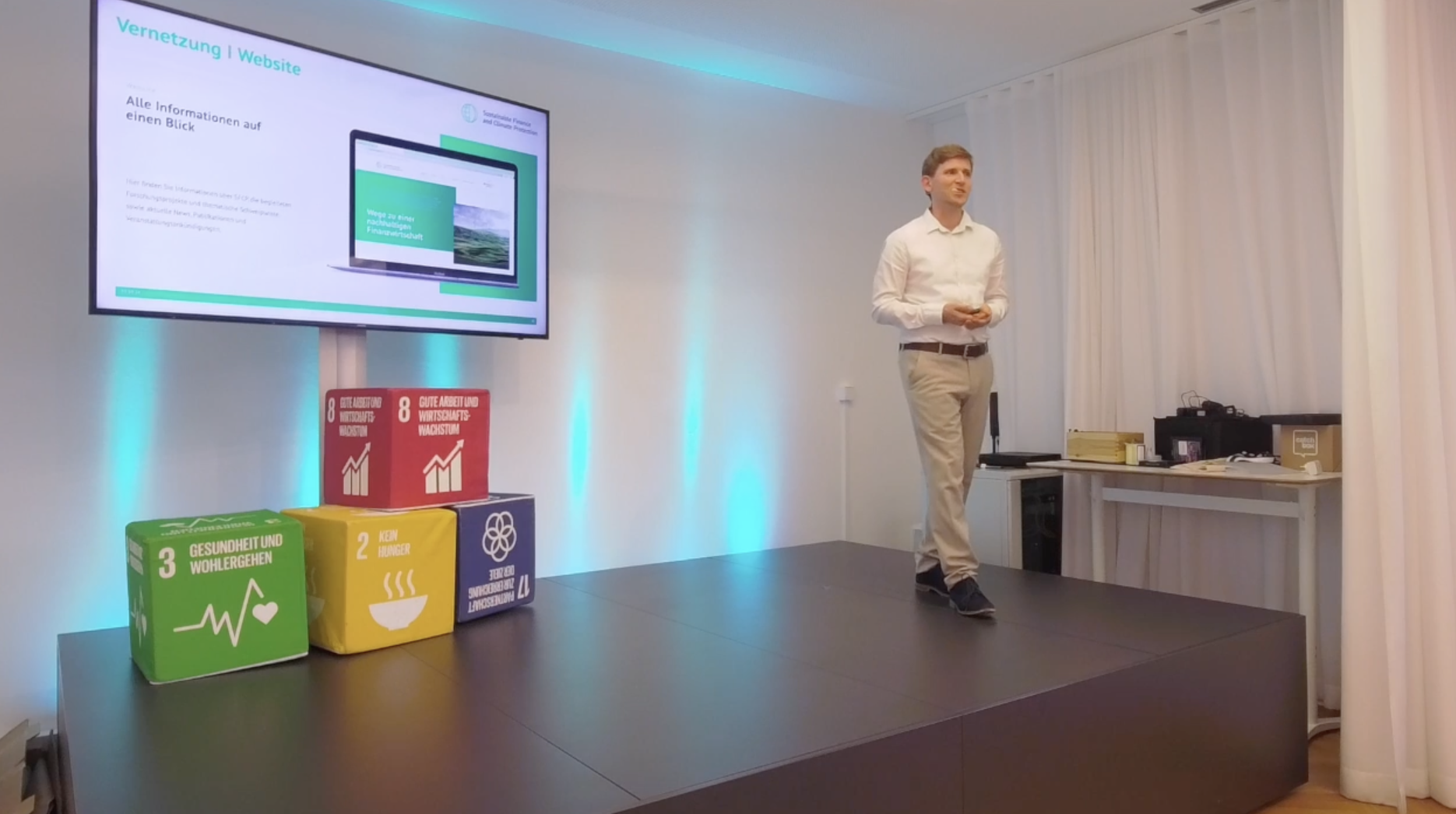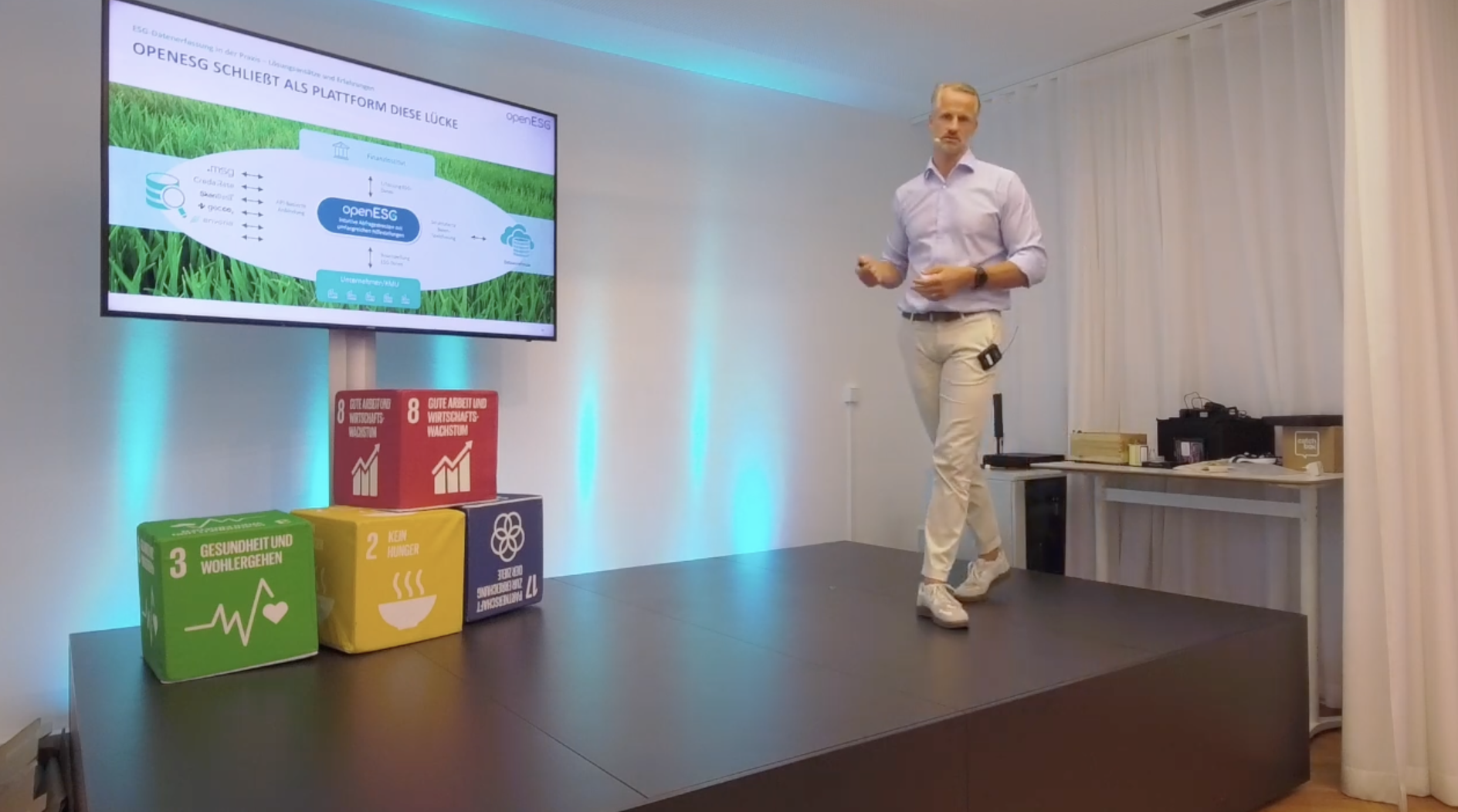After the summer break, the topic of our BtT was “Sustainable Finance”. Three inspiring keynote speeches offered exciting insights into the world of sustainable finance and the challenges that companies and financial institutions have to overcome – from the role of banks in sustainable lending to innovative solutions for ESG data management. Learn more about the key insights and approaches on how the financial system can support the transformation to a climate-friendly and future-proof economy.
Sustainable finance: Real economy between loans and ESG data management
Sustainable Finance in Lending | Lena Cersosimo (Helaba)

We started the evening with a presentation by Lena Cersosimo (Associate Director Sustainability Management) from Helaba.
Banks play an important role in the sustainable transformation of the economy, as they provide companies with capital for various projects. They are drivers of the financial sector and can also mobilize investors to invest in sustainable finance. But how do financial institutions go about this? What rules do they follow in corporate management or risk management?
Lena’s answer is: The starting point is always the business strategy from which the risk strategy is derived. This results in important measures for a bank’s lending – including in the area of ESG criteria. For example, exclusion criteria are defined. These include sectors that should not be financed because, for example, they are not sustainable investments and entail climate risks, and greenwashing should also be avoided.
In addition, many banks at international level in the financial sector, such as Helaba, have a further major incentive, as they have made a commitment to the Paris Climate Agreement. This requires them to reduce the emissions in their (credit) portfolio to a minimum by 2050 so that the targets under the European Commission’s European Green Deal are also achieved and sustainability risks are reduced. The most important sectors here are the energy sector (28%) and automotive & mechanical engineering (24%).
Watch the video to find out why Helaba and many other banks still focus heavily on the less relevant real estate sector (in terms of emissions) when making investment decisions:
Accompanying project Sustainable Finance and Climate Protection - Presentation | Patrick Weltin (VfU e. V.)

Following Lena’s presentation, Patrick Weltin from the Verein für Umweltmanagement und Nachhaltigkeit in Finanzinstituten (VfU) e.V. bridged the gap between science and practice and presented the accompanying project “Sustainable Finance and Climate Protection (SFCP)”. SFCP is the name of the accompanying project planned by the BMBF for the “Climate Protection and Finance” funding measure.
It all sounds complicated, but the objective is clear: Germany is to become a leading location for sustainable finance and provide space for sustainable and climate-neutral developments. To this end, there are a number of projects and supervisory bodies (14 in total) that are being driven forward as part of the accompanying project, supported by numerous universities. The VfU represents the link to practice here.
The main sustainable developments that the researchers are working on are
- Impact measurement
- Transformation in the building sector
- Climate change and financial systems
- Regulation
- Transparency
Patrick explains more details about how the initiative works in the video.
Would you like to be part of our next “Between the Towers”? Then we look forward to meeting you! Every first Tuesday of the month, we talk about all the topics that move the finance and tech scene. For each edition, we invite experts from the industry and discuss a focus topic. Afterwards, there is plenty of opportunity to network over snacks and drinks. Participation is of course free of charge.
ESG data management for financial institutions | Michael Sindram (OpenESG)

One thing is essential for banks to be able to support the transformation of companies: Data. However, many SMEs do not collect enough or any of the data required to evaluate ESG emissions. Some are overwhelmed by the requirements of the Corporate Sustainability Reporting Directive (CSRD).
Michael Sindram from the startup openESG GmbH explains how this can be remedied. He and his colleagues have built a platform that makes the collection of ESG data for SMEs intuitive and simple – the most important information is collected within 15 minutes, much to the delight of consultants at financial institutions. Such future-proof developments help in dealing with ESG risks and criteria.
What supports this: an easy-to-understand input screen and route, explanations and assistance. But before we write any more here, just watch the video yourself:
Further topics on sustainability, the financial system and investments




